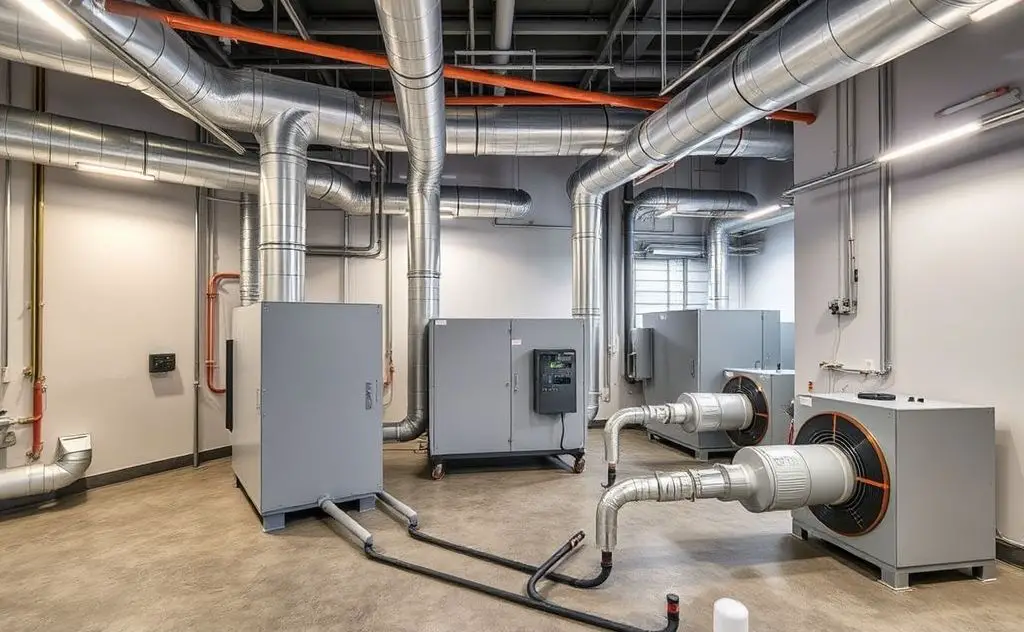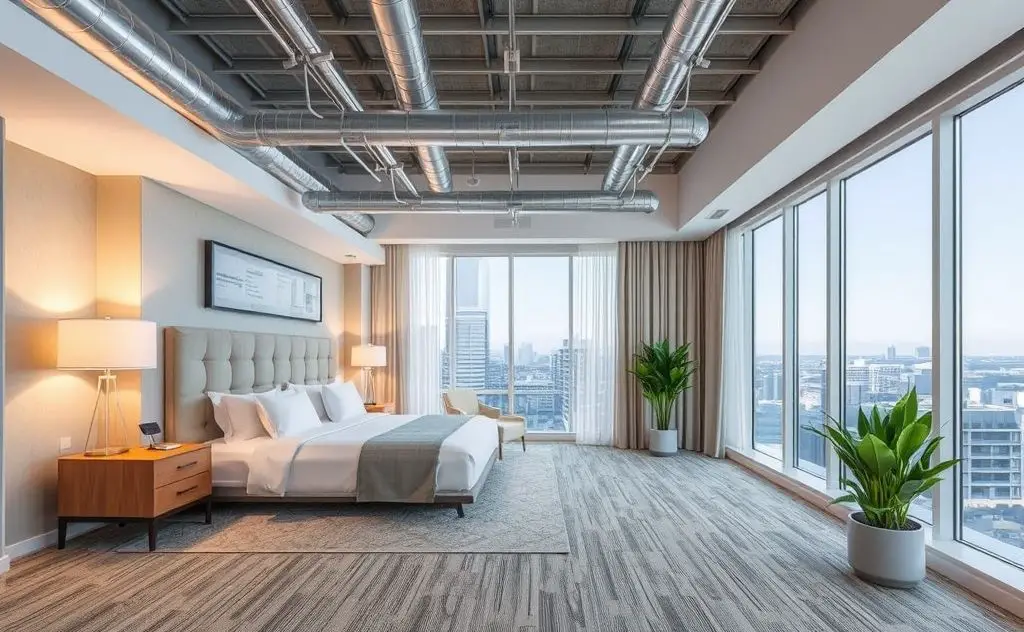HVAC systems in hotels are crucial for maintaining guest comfort, ensuring air quality, and optimizing energy efficiency, directly impacting satisfaction and operational costs.
HVAC systems are the backbone of hotel operations, directly impacting guest satisfaction, energy costs, and indoor air quality. Proper climate control separates luxury hotels from mediocre ones.

How HVAC Impacts Guest Experience
Hotels live or die by guest reviews. HVAC issues account for 23% of negative hotel complaints according to hospitality surveys.
Temperature Control
Guests expect perfect room temperatures year-round. Modern systems like VRF technology allow individual room control while maintaining efficiency.
Air Quality
Proper ventilation reduces odors and prevents mold. Hotels require 4-6 air changes per hour in guest rooms for optimal freshness.
Noise Levels
Quiet operation is essential. The best hotel HVAC units operate below 45 decibels – quieter than a library.

Key HVAC Systems for Hotels
| System Type | Best For | Noise Level |
|---|---|---|
| PTAC (Packaged Terminal AC) | Budget hotels | 50-60 dB |
| VTAC (Vertical Terminal AC) | Mid-range properties | 45-55 dB |
| VRF (Variable Refrigerant Flow) | Luxury hotels | 35-45 dB |
Energy Efficiency Considerations
HVAC accounts for 40-60% of hotel energy use. Modern systems like Energy Star certified units can reduce costs by 30%.
Special Hotel HVAC Needs
Pool Areas
Indoor pools require specialized dehumidification systems to prevent corrosion and mold. Proper systems maintain 50-60% relative humidity.
Conference Rooms
Large spaces need powerful systems that can quickly adjust to occupancy changes. Commercial-grade HVAC with zoning capabilities works best.
Kitchens
Require heavy-duty ventilation to remove heat, grease and odors. ASHRAE recommends 15-20 air changes per hour for commercial kitchens.
Maintenance Best Practices
- Monthly filter changes
- Quarterly coil cleaning
- Annual professional inspection
- Real-time monitoring systems
According to ASHRAE standards, proper maintenance can extend HVAC lifespan by 5-10 years while maintaining peak efficiency.
Future Trends
- Smart thermostats with AI learning
- Geothermal heating/cooling
- Solar-assisted HVAC
- IoT-connected predictive maintenance
The hotel HVAC market is projected to grow 6.2% annually through 2028 as properties upgrade aging systems and adopt new technologies.
